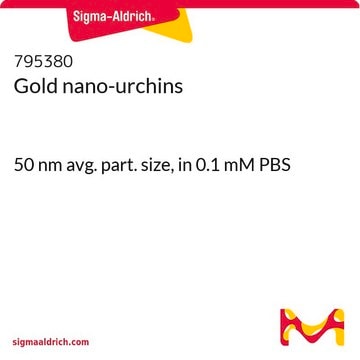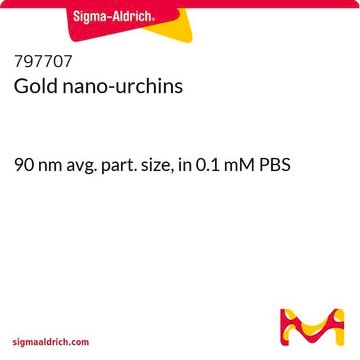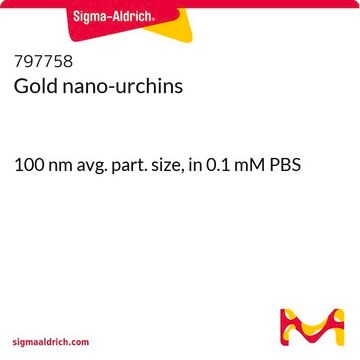797723
Gold nano-urchins
80 nm avg. part. size, in 0.1 mM PBS
Sinonimo/i:
Gold nanoparticles, Non-functionalized gold nanoparticles
About This Item
Prodotti consigliati
Descrizione
Particles:∼7.82E+9/mL
Forma fisica
liquid
nanourchin
OD
1
Dimens. media delle particelle
80 nm
λmax
620 nm
Temperatura di conservazione
2-8°C
Cerchi prodotti simili? Visita Guida al confronto tra prodotti
Categorie correlate
Applicazioni
Codice della classe di stoccaggio
12 - Non Combustible Liquids
Classe di pericolosità dell'acqua (WGK)
nwg
Punto d’infiammabilità (°F)
Not applicable
Punto d’infiammabilità (°C)
Not applicable
Certificati d'analisi (COA)
Cerca il Certificati d'analisi (COA) digitando il numero di lotto/batch corrispondente. I numeri di lotto o di batch sono stampati sull'etichetta dei prodotti dopo la parola ‘Lotto’ o ‘Batch’.
Possiedi già questo prodotto?
I documenti relativi ai prodotti acquistati recentemente sono disponibili nell’Archivio dei documenti.
Articoli
Biomaterials science integrates smart materials into biological research, requiring a deep understanding of biological systems.
Il team dei nostri ricercatori vanta grande esperienza in tutte le aree della ricerca quali Life Science, scienza dei materiali, sintesi chimica, cromatografia, discipline analitiche, ecc..
Contatta l'Assistenza Tecnica.


